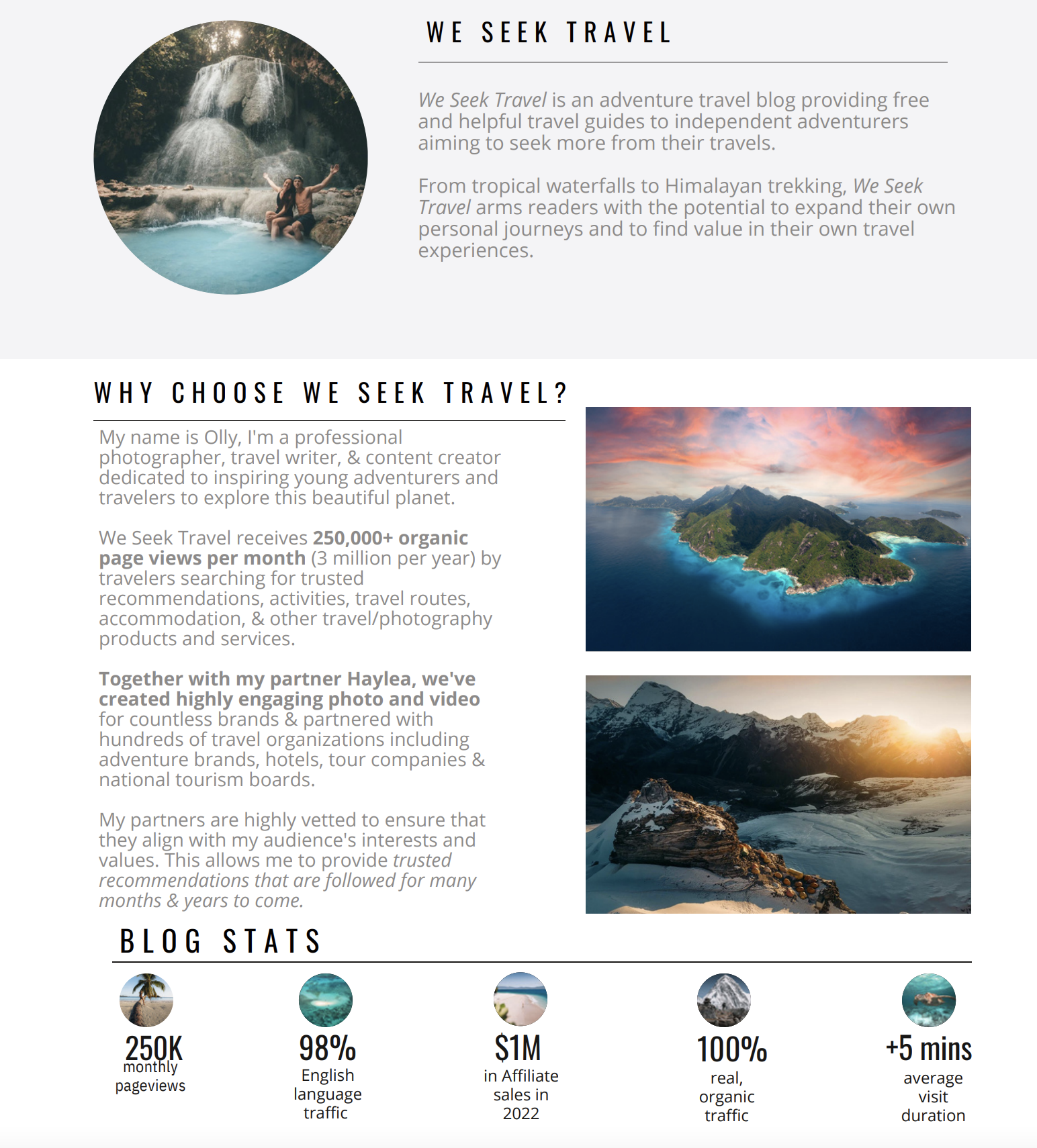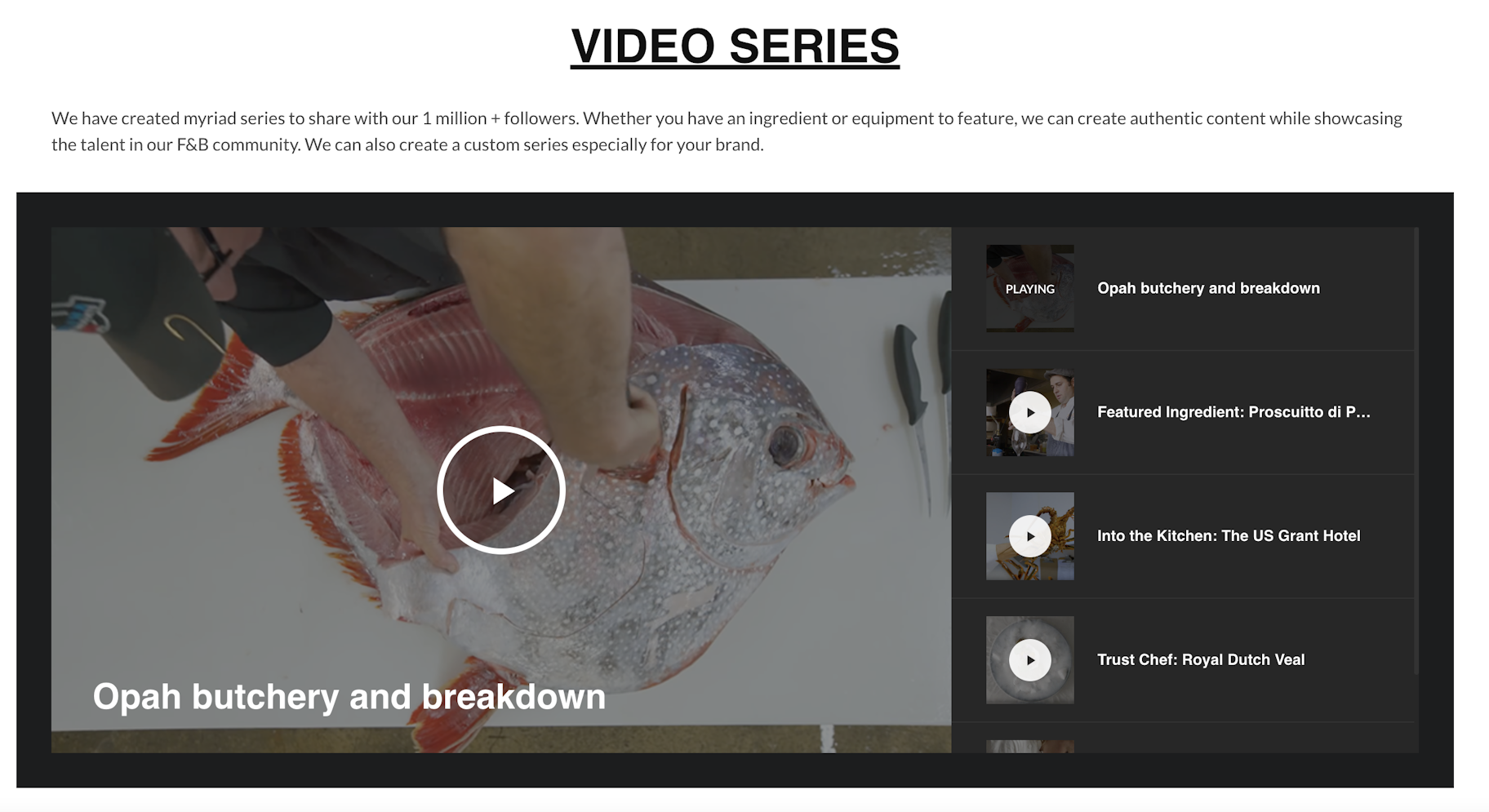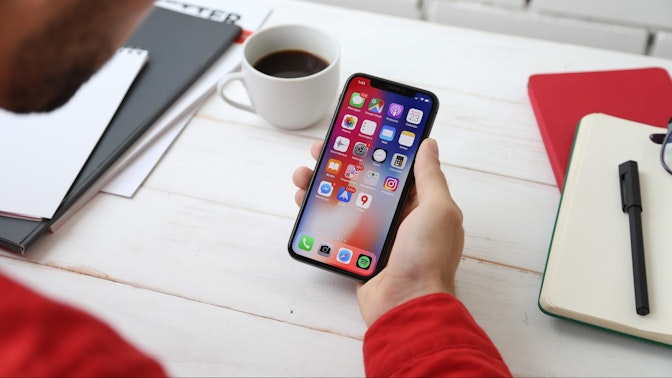So you’ve got the followers, the engagement, and the content. Brands are sliding into your DMs on your social media accounts, and now you’re thinking about leveling up. The answer? An influencer media kit.



What is an influencer media kit?
An influencer media kit is a brief document that digital influencers share with potential clients. It typically includes crucial details about your target audience and clearly lists the services you provide. This document acts as a quick reference for your work, skills, and what you can bring to a partnership on social media platforms.
An effective influencer media kit doesn’t require multiple pages—a one- or two-page PDF or a dedicated webpage often suffices. And if design isn’t your strong suit, there are various influencer media kit templates available to help you get started.
→ Click Here to Launch Your Online Business with Shopify
Influencer media kit vs. press kit
An influencer media kit is a document you create to highlight your work and appeal to potential clients. A press kit, meanwhile, serves as a tool to communicate information to media outlets. A standard press kit outlines a business’s services, introduces key leadership, and includes professional photos.
Why create an influencer media kit?

Brand collaborations are a proven way to earn money from your content. With an influencer media kit, you have a better chance of attracting relevant clients and forging long-lasting relationships. Below are some key advantages of having a media kit:
- Save time: When a brand contacts you, you usually have to gather stats and write individual answers. A media kit ends that repetition. You send it once, and it gives the brand all the key details needed.
- Convey your style: Online, you compete with thousands of influencers. Your media kit is a tool that quickly shows brands why you stand out. It shows your style and makes it clear why you’re a good match for them.
- Make a professional impression: A polished media kit signals to brands that you’re more than just a creative force, you’re also savvy about the business side of influencer marketing. It shows you’re organized, serious, and fully invested in your craft.
Elements of an influencer media kit
1. Bio and contact info
Before diving into numbers or services, let brands know who you are. If you’re a travel blogger, you could mention having visited 40 countries or being featured in a top travel magazine. Include your essential contact details and social media links upfront.
2. Influencer services
List out your services. Maybe you excel in video content, or perhaps you offer unique cooking tutorials. Specify what kinds of collaborations you are open to, such as tutorials, reviews, or guest posts.
3. Performance stats
Here, lay out the hard data. How many followers do you have? What’s your monthly blog traffic? Present these figures clearly so brands can quickly gauge your reach and impact.
4. Audience demographics
Brands need to know if your audience matches their target market. Include a breakdown by location, age, or other demographics that are relevant to your content.
5. Engagement metrics
Show how your audience interacts with your content. Perhaps you’ve got a high click-through rate on your links or your posts routinely receive lots of shares. Make it clear that your audience isn’t just large but also engaged.
6. Previous collaborations
Detail past partnerships and how they succeeded. Were there a significant number of conversions from a campaign you ran? Did you exceed benchmarks? Put this information in to bolster your case.
7. Visual samples
Put in images or videos that showcase your work. This shows potential clients the quality and style of content they can expect, eliminating any guesswork.
How to make an influencer media kit

1. Pick a format
Media kits pack in a lot of figures and facts. So, you must choose a format that makes this information both visually appealing and easy to digest. Some examples of suitable formats include a one-page PDF or a short slideshow. If graphic design isn’t your thing, you can use an influencer media kit template to get yourself started.
2. Gather insights
Put in the numbers that show your content’s impact. State where you post, how many people follow you, and the level of interaction you get. Use the analytics tools on your social media pages to find out your average likes and how many people see your posts. If you run a blog or a website, Google Analytics can give you an overview of your traffic stats.
3. Request testimonials
Ask your current clients for testimonials. Send an email or make a call to request their thoughts. You can make it easy by sending a few questions they can answer. These testimonials show that, besides creating good content, you’re trustworthy and efficient in your work. This extra layer of trust can make the difference in convincing potential clients to choose you for their next campaign.
4. Craft your bio
Write a brief bio that zeroes in on your background and qualifications. Include standout moments like awards or media features. Always include your contact info; it’s the gateway for future collaborations. A quick tip: Regularly update your bio to reflect your latest achievements.
5. Add design flair
The design of your influencer media kit serves as a visual extension of your personal brand. Start by selecting fonts and colors that capture your unique vibe. Follow this by integrating your logo or a signature element consistently to establish brand recognition. Lastly, feature high-quality images that match your style to give potential partners a preview of what they can expect from a collaboration with you.
6. Review other influencer media kits
Before creating your own influencer media kit, look at examples from other creators. Find kits that catch your eye and note what they have in common. This helps you gauge what’s standard in terms of length, content mix, and layout. It can also ignite your own creative design ideas.
Where to share your influencer media kit
Think of your influencer kit not just as a document, but as an extension of your brand. You want to make it accessible by sharing it on various platforms. To maximize its reach, consider integrating it into the following touchpoints:
- Website link: Place a direct link on your homepage. Make it effortless for businesses to discover your kit.
- Email signature: Attach the kit to your email signature. It ensures that your credentials follow you in every professional interaction.
- Social media share: Share a clickable link on your active social media channels. It’s a simple way for companies to see your work immediately.
- Platform profiles: If you’re on platforms like Shopify Collabs, add a link to your media kit in your profile. It gives potential partners instant access to your credentials.
Influencer media kit examples
Now that you know the basics of what makes a good media kit, it’s time to check out a few that hit the mark.
We Seek Travel

Looking to craft a standout media kit? Take a cue from the adventure blog We Seek Travel. Its media kit gets straight to the point, spotlighting key metrics like monthly pageviews and affiliate sales upfront. It tells travel brands exactly what they need to know: How much value they can expect from a partnership. The straightforward layout and clear presentation make it an ideal template for anyone looking to showcase their worth to potential partners in the travel sector.
Chef’s Roll

Chef’s Roll nails it with its media kit by showcasing its hefty 1.6 million social media following. But it doesn’t stop there. It smartly includes sample videos—from recipe tutorials to brand stories. This video element not only demonstrates its high production quality, but also proves it understands visual content is king in the food industry. Industry testimonials seal the deal, making you trust that it can deliver on its promises.
Measuring the effectiveness of your media kit
Understanding your media kit’s impact requires a keen eye for detail. Observe how often people click your links, download your kit, and stick to your guidelines. Here’s your checklist for gauging effectiveness.
- Monitor downloads: Implement basic analytics to see the number of times your media kit has been downloaded. The more downloads, the broader your reach.
- Measure engagement: Are you receiving more inquiries or collaboration offers after updating or sharing your media kit? An uptick in responses could signify your media kit is effective.
- Assess guidelines compliance: Track how well brands and media follow your kit’s details. Frequent mistakes like name misspellings suggest your kit needs revising or clearer communication with partners.
Wow brands with a killer influencer media kit
Your influencer media kit is your calling card, your elevator pitch, and your portfolio all rolled into one. In a space where opportunities surge by the second, a compelling kit differentiates the pros from the amateurs. So keep it sleek, stocked with your latest achievements, and ever-ready to share.






